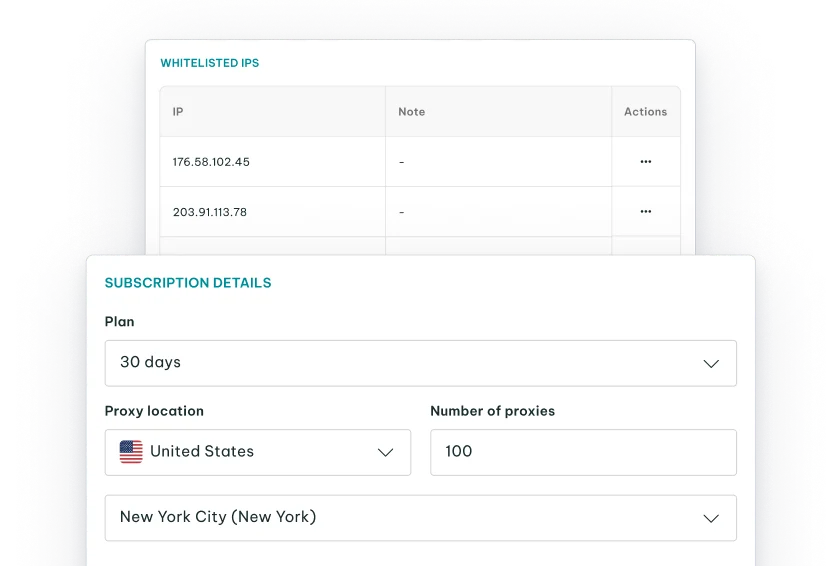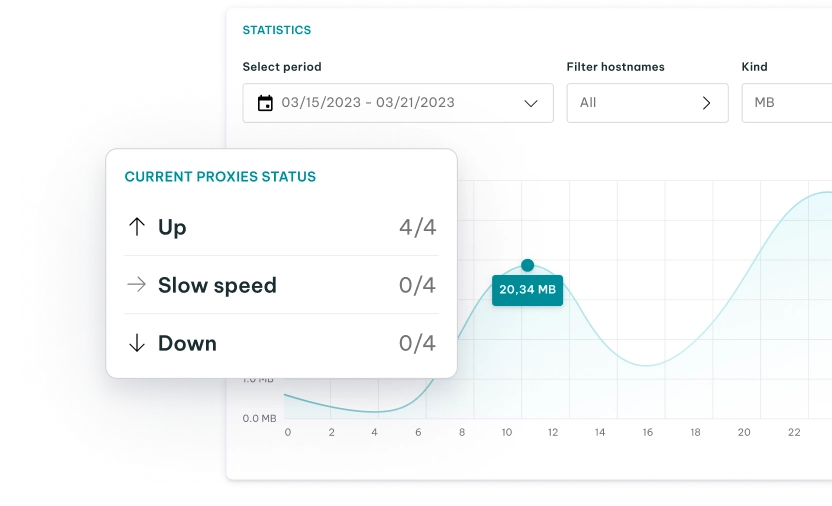Which Residential Proxy Type to Choose: Static, Dedicated, or Rotating
Proxy fundamentals

Vilius Dumcius
Residential proxies are your best choice if you don’t want to be banned from websites. They have IP addresses associated with genuine users and ISPs, making them more legitimate and reliable than other proxies.
However, the search for the perfect proxy solution doesn’t end here. You have to find the best residential proxy type for your needs (if you already know what a residential proxy is ), as there are several ones available, including static, dedicated, and rotating. Each has unique features and benefits, so how to choose the right one?
Below we look at each proxy type to help you pick the best proxies for your needs. Before we get into details, here’s a quick overview of the key differences.
| Static proxies | Dedicated proxies | Rotating proxies | |
|---|---|---|---|
| Exclusivity | Shared or private | Private (one user only) | Shared |
| Performance | High | Highest | Depends on the number of users |
| Rotation | None | Depends on the provider | Highly customizable |
| Pricing model | IP-based | IP-based | Traffic-based |
Static Residential Proxies
Static residential proxies are proxy servers obtained from real internet service providers (ISPs) and hosted on servers in data centers. This is why they are also known as ISP proxies.
While these proxies come from datacenter servers, web servers still see them as genuine residential IPs. This is why they combine the best qualities of residential and dedicated datacenter proxies servers – unparalleled anonymity and high speeds. Consult our in-depth comparison for a better overview of datacenter vs residential proxy use cases .
These proxies have IP addresses that never change. So, you can use them to access the same site multiple times without raising any red flags as you would do with different IPs.
Basically, the target site will think your requests are coming from different regular users, so you won’t get detected or banned. For that reason, these proxies are ideal for account management, SEO, banking, and even bandwidth-intensive tasks like conferencing, video streaming, etc. Depending on the provider, they can be shared or dedicated.
Dedicated Residential Proxies
Dedicated residential proxies are very similar to static residential proxies in terms of their origin and consistency. They come from actual ISPs but don’t involve end users, being hosted on servers in data centers.
Also, they don’t change their IP addresses, allowing you to use the same IP as long as you want. However, unlike static residential proxies, which can be shared between multiple users simultaneously, these are always dedicated.
This means they are reserved for you , so you will never share them with anyone else. As a result, you’ll have all the bandwidth for yourself without worrying about performance issues. At the same time, you won’t have to worry about what other proxy users are doing and whether they misuse the IPs .
Also, with a dedicated proxy service, you may be able to replace your IP with a new one after a certain period , like a month, depending on the provider. You don’t have this option with static residential proxy servers, as they always have the same IP.
Rotating Residential Proxies
Rotating residential proxies are the only residential proxy type that offers IP rotation. Their IPs change frequently, usually after each request or a set period, making you look like a new user whenever you access the same site. This way, it’s harder for site servers to detect and block you.
Some rotating residential proxy services offer sticky sessions as well, allowing you to hold the same IP for a certain period. This functionality is essential for social media management, web scraping, web testing, and similar tasks.
As a residential rotating proxy user, you get access to the entire proxy pool just like any other user. This means that these IPs are always shared, unlike dedicated proxies.
Despite being shared, business proxy server still provide high anonymity and privacy as they are sourced from real residential users and ISPs. On the other hand, this makes them somewhat slower and less reliable than static residential and dedicated proxies.
To Sum Up
While each residential proxy type provides high anonymity and reliability, they have different features and advantages that can make a huge difference. Therefore, consider everything before choosing to use static or rotating proxies .



